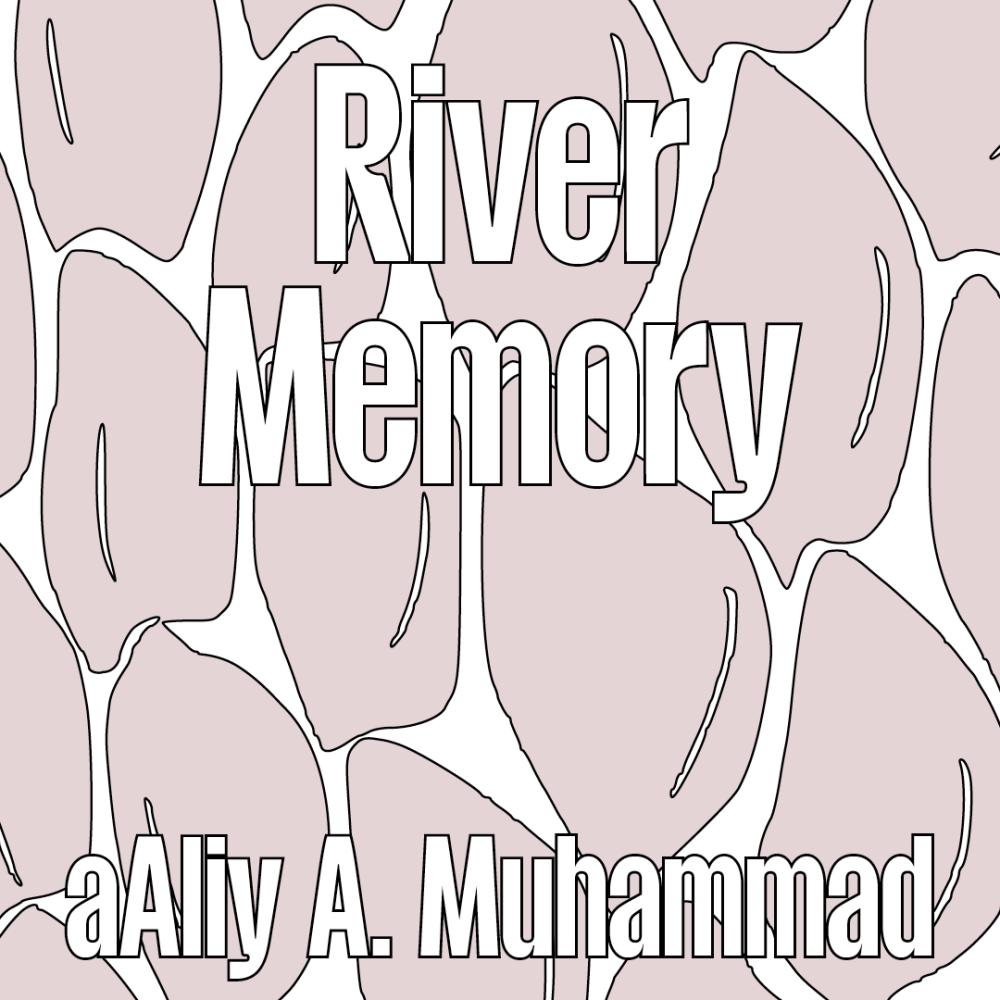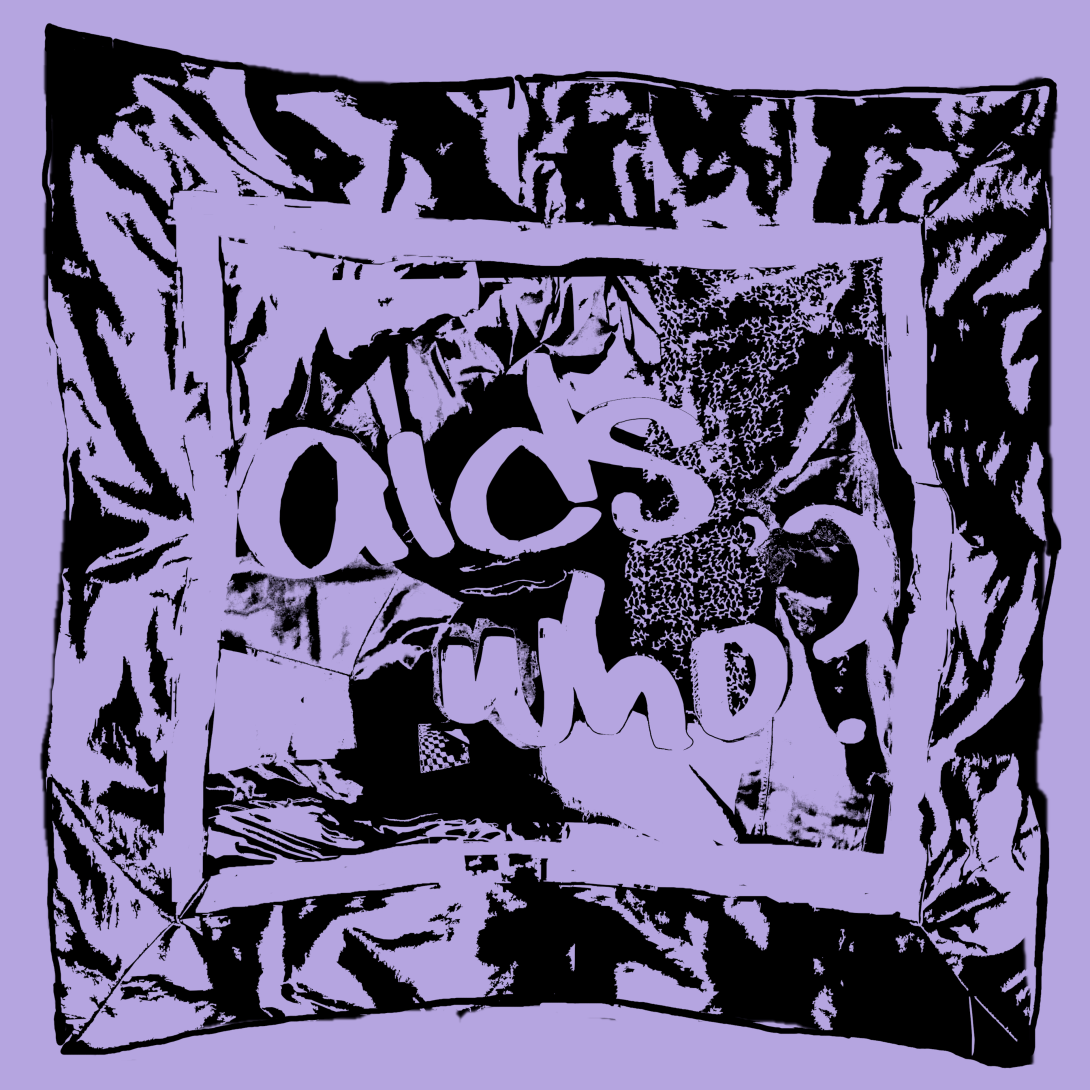River Memory
aAliy A. Muhammad
Voorwoord door “Assemblees in België omtrent aids, archieven en kunsten”
In hun gedicht opgedragen aan Melvin Dixon spreekt aAliy A. Muhammad tot ons over aids en zwarte verwantschappen. We denken al een tijdje met aAliy mee tijdens het maken van “Aids, archives, and arts assemblies in Belgium”. Die heeft het het samen met ons gemaakt. Vorig jaar in september markeerden we de ontbinding van ons project - we vierden wat oplost, wat overgaat en overgedragen wordt - bij VIERNULVIER in Gent. Daar droeg aAliy datzelfde gedicht voor. Vandaag delen we hun gedicht met jullie terwijl we op weg zijn naar ons volgende en laatste publieke programma. Op 13 december nodigen we je uit in de Kaaistudios om over aids, migratie en ras te praten met Emmanuel Cortés, Jaouad Alloul en Pascal Lièvre.
“River Memory” van aAliy A. Muhammad
A song about the end.
Ain’t it funny?
I always thought “End of the road” was a funeral song, as it blasted on radios in 1992.
“Although we’ve come to the end of the road, still I can’t let go.”
STILL I CAN’T LET GO.
STILL
I CAN’T LET GO.
It was about the end of a relationship.
What songs are sung about the start of a connection that happens long after death?
On Monday October 26, 1992 Melvin Winfred Dixon
“a professor of English at Queens College whose works on African and African-American literature were widely praised, died” his New York Times Obituary read. This was published on October 29, 1992, that was a Thursday. Further, “Professor Dixon died of complications from AIDS.”
How many times have we heard those words echo within our bodies?
AIDS complications
Complications from AIDS
Complicated AIDS
AIDS complicated
AIDS is so complicated.
Our relationship to AIDS is complicated by the histories rendered muck
By the moral antagonism of the time. As Mariah Carey sang in 1990, “love takes time.”
They just couldn’t “see” they “treated you wrong.”
Plural you. Big wrongs.
That same day that “Professor Dixon died” I turned 9 years old.
I was born in Philadelphia on October 26, 1983 and Dixon died on October 26, 1992 in Stamford, Connecticut.
Nine, the number of completion.
Melvin died on my birthday.
Big head me, running into the gaze of those who beheld me at a tender age, much to be joyous about. Surrounded by the possibility of the world. Loved on, poured into, not fully seen.
Him, held in the memory of the loved ones gathered to see him depart us earthlings. At rest and filled with the rhapsody of everlasting life in the after. Seen fully, fully loved without question or requirement. I imagine he is not hurting, not overinflamed from a viral death.
I imagine his family still can’t let go.
Do you see him in the Pantheon of AIDS heroes? Or are his glowing bones lodged in a blind spot.
Bright like a stolen diamond, captivating as a Pearl necklace.
“Then there is the chilling threat of erasure.”
After death the archives speculate our disremembrance by suggesting white time.
Because love takes time at the end of the road.
Because you have to first be a person; to be a person living with AIDS.
Because you have to first be a person; to be a person who died of AIDS.
Who died of AIDS?
How many can you count?
Love takes our time
Our time is love.
A loving time.
STILL
I CAN’T LET GO.
Gone & For Ever
The pain feels like shards of glass in your feet, the milked honey turned into clotted cream.
Wafts of your smell lingers in air, eroding acids enter soil near the disturbed earth you were meant to lay.
I guess this is what it feels like to be dangerously in love, close to you, yet deathly far.
A box on shelves with you inside.
A body to ash, magnificent dust of glittery magic, these bones live and dance their demands of respite.
Melvin transitioned celestially, his words as pillows, his heart bleeding love.
I am here dancing in the practice of making sounds with my quiet anger, forming shapes out of his legacy.
To return to him his body, made home for the spoil of the grid.
The lights out, party floor, quilt made of red ribbons swimming in the sky, a memorial to a full-blown possibility of being.
A cake made of sweet taboo, topped with candles burning rush, eats itself.
As the Pantheon of decadent forebears watches the folding onto each other for the love of sexual rapture.
These lovely bones hold heaven in its gristle. Parts of your world unearthed, saponified remnants of old grudge made new beef.
So I creep to waterfalls made of sand, fisting the stream with calloused hands, I make sculpture out of pounded yam.
I see your silhouette and then this song plays “can I call you Rose (Can I call you Rose?)
'Cause you're sweet like a flower in bloom.”
Roots, sacred acre that is washed with the squeeze of one lemon.
They got the juices drooling on mucosa kissed by a bug.
Time after time, making bread out of yeast.
“We got everything to lose with you” like Gary Clark Jr. said.
To lose all of Shange’s stuff, left discarded on Avenue unknown, drenched with rain water and some sweet tea.
A teddy bear ripped open, its insides like cotton clouds of regret lay bare the truth that we are Gone & For Ever.
A body that dies
A body is born.
Then a body grows.
A body is loved.
Then a body hurts.
A body dies.
Then a body is mourned.
Then we are bones.
I love us bone-in.gristle love.fat love.
fall off the bone Black love.
I love you in the Mournin’. salt taste love.
I love you like love ain’t never loved before. futurity love. like we ain’t ‘spose to be here love. that love.
A body to love. When you have nobody to love.
The reanimated body whispering:
“I am soot-made-mud into moons.”
“If i had the spoons I’d be a glowing red balloon.”
“I am in your stories deeply buried.”
“made to glamor in vanishing rooms. Swept under your feet.”
“Sweet.”
“I am sweet.”
“I live in the phantom times. when macrophage and dendritic cells were in me.”
“I am memory, come to reflect on the boundless archive of neglect.”
“I caught your eyes gazing on me.”
“Love on me.”
“I Tended the cells of my rebirth.”
“Take pride in my bloody ways.”
“I never hid love’s tapestry.”
“My body changed territory.”
“I was washed with the glitter of a thousand Black faggots”
“Hung in the cold of past-ness”
Time has a way of looping in the cold, the warm, and the hot.
“Hot like fire”
Our work burns hot into the minds of the possible you.
Grief
Tell the truth,
grief is HEAVY like Effie’s Dream—
gurl, bulbous and magnificent.
“I’m magnificent.”
all you can do is wrap your arms around it.
feel its warmth enrobe you.
let it live in you.
the aliveness of sorrow. the sorrow of being alive.
the salt.
the sweat.
the wail.
Like Rivers
All I see are faces.
What is there to be done about memorial, exalted death mounted on blue clouds, the death rattle now. Our “double cremation” caused by the sexual and gender subjugation in our Blackness, the white supremacy of the maelstorm of gay normativity binds us. Our collective resistance to Black deviance has de-remedied freedom. Has displaced us from the recordkeepers’ gaze.
There is repair in water.
Streaming the hearts of our wayward ancestors, coming together a mighty river of magnificent energy.
We are the water that washes the pain away.
We are the water that remembers their joy.
We are the water of ceremony.
“Like rivers remember source”
We remember them.
And Melvin is somewhere listening for his name.

